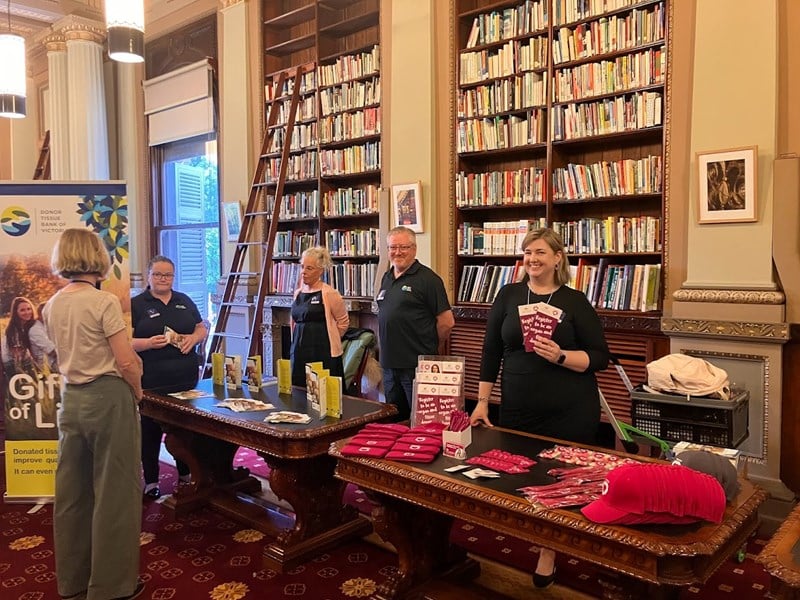Family discussion key to organ and tissue donation
21 March 2024

Registering to be an organ and tissue donor is a selfless act, but one that relies on the consent of your loved ones.
That’s because the donation won’t proceed without your family’s agreement.
Making sure your family knows your wishes is a key message of Register and talk about it, the Legislative Assembly Legal and Social Issues Committee’s final report following its inquiry into increasing the number of registered organ and tissue donors in Victoria.
The Committee received almost 50 submissions, held seven days of hearings and heard from local, interstate and international experts, as well as representatives of diverse communities and donor families who bravely shared their personal stories.
“ ‘Organ and tissue donation is a selfless act that has the power to save and transform lives’. ”
Ella George, Committee Chair
Register and talk about it, makes 74 findings and 41 recommendations.
‘The Committee learned that registering to become an organ and tissue donor goes hand in hand with discussing your wishes with your family and loved ones,’ Committee Chair Ella George told the Legislative Assembly.
'Having had a prior family discussion about donation wishes significantly influences the likelihood that a family will provide consent for a donation to proceed,’ she said.
The Committee found that nine out of ten families agree to donation if their family member is registered. This drops to just four out of ten when the family member is not registered, and the family is not aware of their wishes.
‘Organ and tissue donation is a selfless act that has the power to save and transform lives,’ said Committee Chair Ella George.
‘The reality that faces a grieving family when asked to provide consent to donation is not something anyone wants to experience, yet many families find the strength at a time of intense sadness to recognise that they can help others and provide consent for their loved one to become a donor,’ she said.
Victoria performs well when it comes to rates of donation and transplantation and most people support donation, but only 23 per cent of Victorians are registered to be donors, much lower than the national average of 36 per cent.
The success of driver’s licence donor registrations is evidenced by South Australia, the only state where it is still possible to record a donation decision on a driver’s licence. South Australia’s registration rate, at more than 70 per cent, is significantly higher than Victoria’s, and the highest in Australia.
While Victorians were able to record interest in becoming a donor on driver’s licences for a short period, this has not been possible since the early 2000s.
The rate of registration for young people is particularly low, with just 10 per cent of people aged 16 to 25 having registered a donation decision on the AODR.
The Committee identified building awareness and discussion opportunities about donation among young Victorians as a key opportunity, and makes a series of recommendations to encourage this cohort to register and share their donation wishes with family.
The Committee also considered living stem cell and living kidney donations, and discovered much more can be done to promote both. Australia imports most of its stem cell donations from overseas: but this reliance would be reduced by encouraging more young people to register on the Australian Bone Marrow Donor Registry.
The report and summary booklet are available on the Committee’s website, along with an interactive heatmap of AODR registration rates by Victorian local government area and a timeline of key organ and tissue donation and registration milestones.